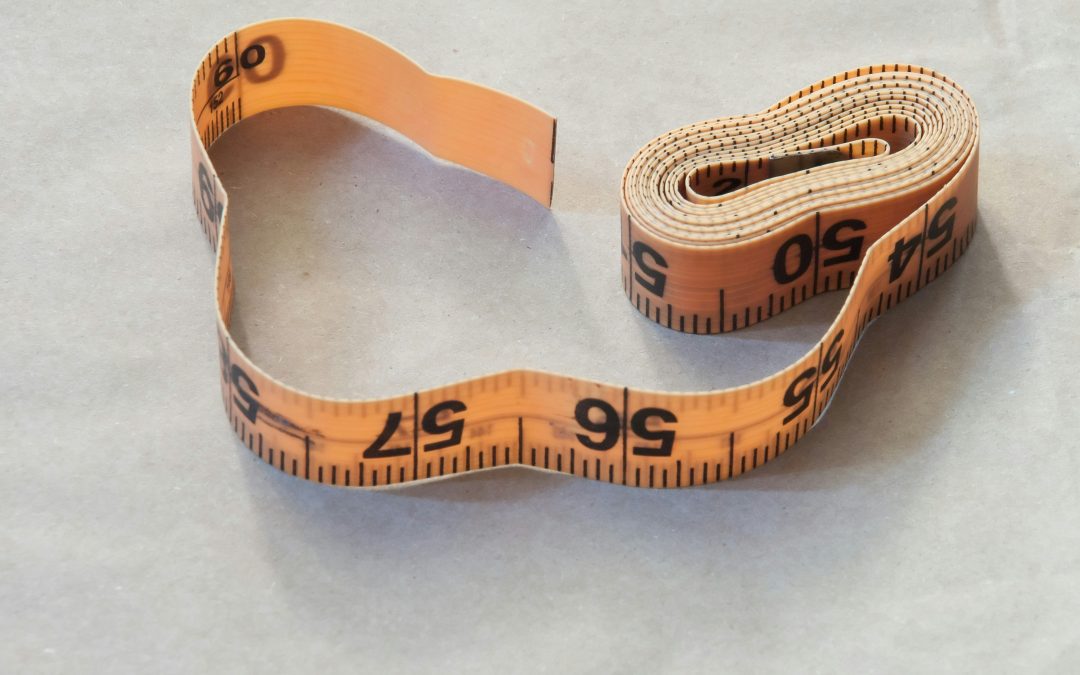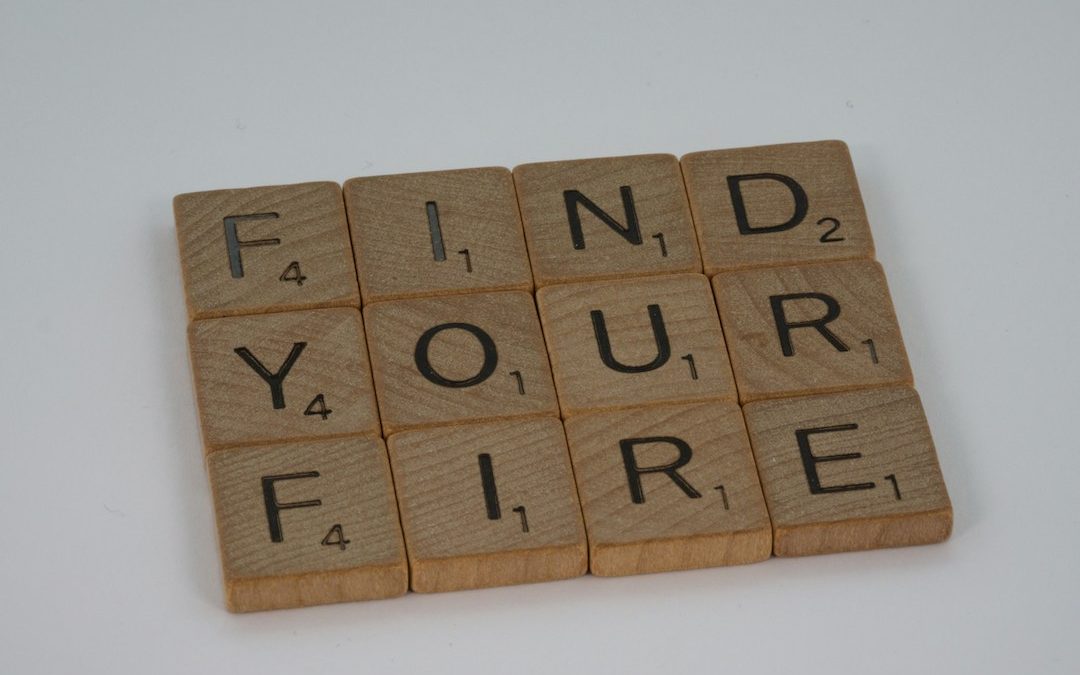
by Rachel Toalson | This Writer Life
This summer a collection of my sons banded together to start a lawn business. For some of them, it was a steep learning curve. On the first few jobs my husband served as the lawn inspector, to make sure they did good work. He had to call them back a few times; they were inexperienced and were learning something new.
The experience gave my husband and me an opportunity to discuss with them the importance of doing good work, especially when someone else is paying you to do it. Do your best, I told them before they’d walk to the yard in need of mowing. Make it excellent.
Excellence is one of my values, so I may have stressed that point a little more than necessary.
Steve Jobs once said, “Your work is going to fill a large part of your life and the only way to be truly satisfied is to do what you believe is good work.”
Most of us spend the majority of our lives working—at something. Some of us get to do what we love. Some of us do the work we have to. Regardless of which it is, we can feel satisfied—and learn to love the work we do—if we do good work. Excellent work, maybe.
Satisfaction is tied to excellence. When we haven’t done our best, we usually feel it in our guts. And it doesn’t feel good.
So how can we make sure we’re pursuing excellence in our work?
Here are my suggestions:
1. Don’t be in a hurry.
Good work—excellent work—takes time. Nothing comes out excellent on the first try. I tell this to the students I visit at schools. Because often, especially when we’re young and new at what we’re doing, we just want to be there. Done. An excellent writer producing excellent work.
The mower in my sons’ business group rushed one of the yards he worked on. It was hot. The lawn mower was heavy. It was nearly time for lunch. When my husband inspected the yard, there were tiny blades of grass in patches everywhere. He had to go back and do it again. He could’ve saved himself some time by doing it right the first time.
When it comes to writing, we can save ourselves time (and disappointment) in the long run if we first take the time to make our work excellent—because an agent or editor won’t take less than that. And we usually only get one shot. We should make sure it’s an excellent one.
2. Never stop growing.
I’ve written about this before, and maybe you’re getting tired of hearing me say it…but in order to be excellent at anything, we have to keep growing. Challenging ourselves. Learning.
That might mean pursuing different forms of writing or different genres of writing, or it might mean telling a story from a different point of view or starting a story in the middle instead of working beginning-to-end. Change things up so you don’t get too comfortable. That’s a way to grow.
It could also mean collaborating with someone or surrounding yourself with mentors and soaking up everything you can from them or pursuing a deeper understanding of craft and writing techniques.
It definitely means practice, practice, practice.
One of the ways I’ve been trying to grow this year is by improving my pitches. I don’t like writing pitches. But they’re necessary at pretty much every step of the process—for my poetry, for my essays, for my short stories, and for my novels. So I’ve been studying and practicing relentlessly.
The other day I sent some story pitches to my agent. She sent me a message back that said, “Your pitches are excellent.” Talk about satisfaction! I beamed it!
3. Accept where you are now and know it’s enough
In pursuing excellence, we can often slide into the pit of perfectionism, which can lead to frustration and disappointment. Maybe even discouragement.
One of the hardest things to do is accept where you are—especially when you want to be farther up the excellence scale. But it’s better to accept where you are today and know that when you commit to learning and growing and you take your time, you will get there.
Everyone wants to be satisfied with their work. So let’s commit to excellence and see how our satisfaction grows.

by Rachel Toalson | This Writer Life
This summer my kids have been trying to learn cool yoyo tricks. They watch YouTube videos, then try to do the tricks on their own—some more successful than others. Some are great at taking their time learning. They’ll laugh at their mistakes and keep trying, at least until they get bored with the practice.
But some have a really hard time with the chasm between how good they want to be and how good they are at this moment in time. They want to be good right now.
As I watched one put down the yoyo and move on other things, one keep practicing until he got “good enough for today,” and another get frustrated to tears because he couldn’t immediately execute a complicated trick, my thoughts turned to writing. And how sometimes it can be excruciating to take our time getting incrementally better.
When many of us (including myself) first get started writing, we want to be the best writers right now—not in five or ten or thirty years. Do we really have to wait that long for this to get easy? (I don’t know…I’m not fully convinced it ever gets easy.)
And related to being the best writers, we want to accomplish ALL THE THINGS right this minute!
I’ve told my kids for a very long time that anything worth doing takes time. (I have a lot of wisdom nuggets that probably go in one ear and out the other—which is why I repeat them so often. They’ll be mantras in their heads by the time they leave this house. I can do hard things. I am magnificent. I can take my time becoming…anything!)
It’s not always fun to take our time.
We’ve been listening to the Hamilton soundtrack nonstop this summer (a few kids are obsessed with the musical). There’s a song with the line, “Why do you write like you’re running out of time?” That gets me every time I hear it.
I’ve always written like I was running out of time. Everything feels urgent—every project, every piece, every idea. I have to do it. I have to do it now. And it needs to be great—now!
But we don’t learn how to be excellent at something quickly. Even if we have talent and skill, that talent and skill needs to be honed. We don’t start out excellent. We become excellent with practice and years.
Mary H.K. Choi, who has written some of my favorite young adult novels, says, “It’s not about the accomplishment, it’s about the very slow and grueling work of just getting better at something over time. It always takes time.”
It always takes time. And grueling work.
Getting better doesn’t just accidentally happen. We have to make it happen. We have to pursue it.
So how do we do that as writers? Here are my suggestions.
1. Improve intentionally
In order to improve intentionally, we have to be aware of our writing weaknesses. I like to make a list and then make a plan. Seek out educational resources, like Writer’s Digest (I subscribe to the print magazine, which is a fantastic resource, and their web site includes writing courses and craft books) or DIY MFA (https://diymfa.com/), which has all kinds of helpful resources on the craft and business of writing.
Make a curriculum of improvement for yourself, if you’re so inclined. I like to focus on one element at a time: character or voice or plot or story structure or setting or pacing. You can also go broader and focus on poetry or short story or essay as a “course of study.”
If that doesn’t appeal to you, because you’re not as ridiculously excited about learning as I am, you can still intentionally improve by constantly writing—and finishing what you start. And reading like your craft depends on it—because it does.
2. Evaluate
In order to improve, we must have some form of evaluation, even if it’s as simple as reading through your previously written compositions to note how you’ve improved and then reading through new stuff and making note of areas where you still need to improve. Look at your compositions through objective eyes. Many of my stories and compositions have their own unique areas of weakness, which means I have to approach each of them differently.
Here’s a little secret: that little niggling fear about what’s wrong with your piece or manuscript (the pacing’s off, the voice isn’t quite right, it has too many characters)—your gut is usually right, and an agent or editor will likely recognize it. Better to just go ahead and improve those pieces now. Sometimes that will require learning new things and gaining new skills. But we’re up for the challenge, aren’t we?
Give yourself a report card as you make your evaluations. Check on your progress every quarter or so.
3. Remember to be patient
Instead of thinking, Why can’t I be good at this already? focus on the ways you’ve improved incrementally. Improvement can be, as we’ve already established, excruciatingly slow. As a runner, I know this from my training. Making incremental gains, almost too tiny to notice, is still improvement. It all adds up.
In anything that takes time, there comes a point when we want to give up. That usually happens around mile eight of my runs (but years ago it would happen at mile four—so improvement!). Or the middle of a story. Or, lately, the end of the middle of a story. But keep at it. The end result is worth the work we put in now.
And it’s worth noting that we’re never really “there.” We never reach perfection. We always have potential for improvement, no matter how long we’ve been writing.
Time gives us practice, which leads to improvement.
Achievement also takes time. Often, the more we improve, the more we achieve. So there’s a silver lining for you.
When we’ve put in decades (I know how long that sounds, but the years seem to fly!) to our writing craft it can be incredibly fulfilling to look back and see how far we’ve come.
So how far have you come? Miles or inches, it’s all necessary improvement.
May you have a month of large and tiny improvements.

by Rachel Toalson | This Writer Life
Some writers stay far away from personal experience when crafting stories.
Me? I like to toe the line. Most of my stories contain very specific pieces of my life. My first traditionally published book, The Colors of the Rain, included grandparents and an uncle and a real-life family tragedy. My second book, The Woods, was not my personal experience, but I drew upon real-life historical events—the Texas City Disaster. The First Magnificent Summer includes my experience starting my first period one thousand miles away from home while visiting my dad and stepmom after my parents divorced. And my most recent book, Something Maybe Magnificent, is a very close retelling of my stepdad’s and my story.
In Donald Maass’s book, The Emotional Craft of Fiction (which is one of the best craft books I’ve read, by the way), he says, “Writers have amazing personal stories. Sometimes they’re downright astonishing. What’s puzzling to me is that people with such rich experience to draw upon too often write stories far less dramatic than their own.’
Why is this?
I think sometimes we’re afraid to write our stories. We’re afraid to use the situations that caused us such turmoil and angst and all kinds of big emotions. But we felt those big emotions. And when we write about those big emotions, our readers will also feel them. That’s something worth considering.
What I’ve discovered as a writer of semi-autobiographical fiction is that often, sorting through those situations in my past—the ones that hurt me or the ones that threw me sideways or the big disappointments and setbacks—help me actually process through them in a healthy way. Write them into a better story, maybe. One of the most powerful things we can do in our lives is turning our experiences into a story—whether or not we share that story with the world. Psychology research shows that shaping our experiences into stories helps us process and heal from them.
Most of us have rich experiences that would make fascinating stories. Many times we think, No one else would be interested in this. But that’s just seeing through our foggy lenses. It may not be interesting to us, because we lived it. But it will definitely be interesting to others who haven’t lived it. Or others who have lived it; they’re grateful to know they’re not alone.
Of course we might not want to share every personal story we’ve lived. But some of them might be worth exploring, don’t you think?
Here are my best tips for doing that:
1. Make a list of all the significant events you can remember in your life so far.
I’m thinking high school trips where you fell in love (hello, Disney World band trip), the first week of college when you were trying to find your bearings. First love, first kiss, a marriage or engagement. Kids. Deaths. Divorce. That family tree project in third grade where you didn’t know anything about your family and could only trace back a couple of generations. The time your grandmother told you she liked you better when you ate.
(These are just my stories. I know they’re probably not yours. I’m just trying to get your brain working.)
Think about all those experiences that made an impact on you one way or another. They don’t have to be bad. They can be joyful, too. Though the disappointing and heartache-y situations make for better fiction. 🙂
2. Consider the question, If I had to write a story about my childhood, what would it be?
Or another: If I had to write a story about my young adulthood, what would it be. And: If I had to write a story about my life now, what would it be?
Sometimes just asking ourselves the question can unlock inspiration to draw upon for stories or writing pieces. For example, I had a string of months right after my oldest turned 13 when we couldn’t seem to have a conversation without an argument. He took everything I said the wrong way. I wrote a poem called, “I Am a Villain in His Story.” Because that’s very much how I felt. That led me to begin work on an adult novel about a mother exploring her relationships with her children and the myriad ways she lets herself down. It may or may not go anywhere. But it’s real-life inspiration.
3. Look back at old things.
After graduating high school, I spent my summer making scrapbooks of all four years of my high school education. These things are a treasure trove of what teenage Rachel felt was important to highlight in her life. Have I used them for some young adult story inspiration? Absolutely.
Journals, diary entries, old writings, yearbooks. Receipts, old emails, letters. Get your hands on anything that will tell you a little bit about your past life. Something more than your memory can tell you.
If you’ve been a diarist or journal keeper, these, too, can be spectacular treasures. When I was thinking back to my first love story (which I shared in the last email, if you want to read a teeny bit about it), journals were helpful for showing me just how melodramatic those first-love feelings can be. When you’re young and in love and that love is suddenly taken away, it’s devastating. It feels like life won’t go on (contrary to what Celine Dion sang the year of my first heartbreak). Like you will never feel that way about someone again. Like the world can’t possibly have another Bubba Loewe in it. (Yes, I dated a guy named Bubba, and I was completely smitten. I don’t even recall his real name.)
You never know what kind of inspiration you’ll find when you look back. So take out those old journals and start paging through your “important mementoes” drawer. Real-life stories can make lovely fiction.
When we write from real life, we don’t have to imagine emotions, because we lived them. We remember them. Or we’re still living them. And that makes a difference to readers. Because we remember the way books make us feel.
I hope you have a fantastic month of writing your stories—for yourself or for others.

by Rachel Toalson | This Writer Life
The first book I wrote I didn’t brainstorm. I flew by the seat of my pants. The second book was the same. Both took months of revision to get them in submission shape.
After those first two books I created a brainstorm document for myself. I thought I could use it for every book thereafter. My secret formula for writing a book.
I tried using the brainstorm document on the next book. Nothing worked. I felt completely helpless. I thought, How do you write a book?
That question creeps in every book I begin, no matter how many books I’ve written.
Maybe that’s discouraging to hear from someone who’s written more than 40 books. I don’t mean it to be. I think it’s actually kind of exciting. There’s this interesting thing called the knowledge gap that says the more we know and learn, the more we realize we need to know and learn. This keeps our minds open to new possibilities.
So when we’re faced with the question, Uhhh….how do you write a book again? our minds are primed to focus on developing our craft and making it easier for us. Making storytelling something intuitive instead of something we have to consciously think about endlessly.
Continuous learning is what brings us into expert territory. When we realize we don’t know what we’re doing, we approach each book as though it’s all brand new. Our books don’t become formulaic because most of the time we can’t use the exact same method of brainstorming and writing and revising for every single book.
I take some of the pieces from that brainstorm document I created and use them here and there, but every book is different. That’s what makes writing exciting. It’s also what keeps us pushing to learn more about our craft.
None of us really knows what we’re doing—and that can be liberating. Because we all have room for improvement. And that means we can really engage with our stories, instead of going through the motions and becoming, for lack of a better word, robotic at it.
When we’re learning something new, or learning more about it, we play closer attention to it. When we think we already know everything we need to know, our minds close up tight against new ideas that challenge what we think we know.
Creativity is best expressed through an open mind.
So when we face that blank page and we have no idea where to begin, we don’t have to feel stuck or get down on ourselves for not knowing exactly what to do next. It’s all a part of the grand process. Author Sue Grafton keeps journals for books she’s written. And whenever she starts a new book, she says she can always peek back at those journals and “discover I was just as confused and befuddled back then as I am today. Prior journals are reminders that regardless of past struggles, I did somehow manage to prevail.”
Here’s how to embrace the reality that every book is different:
1. Let the story lead.
Even when writing a series I have a slightly different method for each book (it’s worth noting that the differences aren’t always drastic). I thought I’d start my recent middle grade horror story (book 4 of the series) with the ghosts and flesh out their backstory before beginning on the plot. That wasn’t what the story wanted. So I jotted down some plot points, then dove deeper into the characters and ghosts.
I like to know the tone of a story and the voice of a character before I start writing. But in a recent story draft (another middle grade), I’ve just been clearing my throat. I know I’ll need to go back and probably cut several chapters from the beginning, but it’s what the story needed at the time. I followed its lead.
And that’s what a first draft is for: discovering the story. Sometimes it takes a while to find our way.
Some stories want extensive brainstorms. Some want to be told in a linear way. Some want us to focus all our energies on a particular cast of characters before we do anything else. Some don’t ask for any of that.
Don’t miss out on what the story has to tell you, however confounding and out of your comfort zone it may be.
2. Embrace the not-knowing.
I’m one of those people who hates not knowing anything—so this point is especially hard for me.
The truth is, most of us intuitively know how to tell a good story. We’ve been doing it since we were young. We might not get it right on the first try—but no one really does.
Not knowing how to do something makes us uncomfortable. It also makes us more willing to consider new ways to write and encourages us to learn more about storytelling and craft. If we embrace the unknown, we leave our minds open instead of closed. Creativity can have a field day with an open mind.
3. Remember that when we’re challenged we grow.
If writing were easy all the time, if we constantly knew what we were doing, it would not only get pretty boring but we would also cease to grow. We might stagnate. Our creativity and stories might stagnate.
No one wants to tell or read the same story over and over and over again. Formulas get boring for writers and readers.
Challenges can be frustrating and hard—but we become better writers—and people—by working our way through them.
Never stop growing. Keep embracing the mystery. Know what you don’t know and use it to your advantage.
I hope you have a stupendous month of creativity and joy.

by Rachel Toalson | This Writer Life
When I visit schools to talk to elementary and middle school students, one of the most frequently asked questions I get from them is “How much money do you make?” I get some interesting variations—“Are you rich?” “Do you live in a big house?” And at the most recent visit—“What’s your net worth?”
Uh…none of your business?
I usually try to answer this “How much do you make” question diplomatically: Not as much as you think.
Readers often have an inflated idea of how much money authors make. Most of us don’t make a whole lot. There’s a popular myth about authors that says once they get a book published, they’re all set. Maybe we believe or believed that once, too.
I certainly did. At first. Before I learned the real story.
When my first book published, I thought everything would change. I wasn’t under the illusion that I’d be rich, but I thought maybe I’d start earning at least a steady income.
That was in 2018. Here we are, six years later, and I don’t make a steady income as an author—yet. It’s the yet, I think, that keeps writers going. The endless hope that something will change, this will be my year, this book will be the breakout.
Writing takes time and commitment. It’s not an easy job. Most of us who do it love it—and it’s that love for it that keeps us coming back to the blank page again and again and again. We want to do it for love. It’s our pleasure, maybe even our purpose (it certainly is mine).
And in a perfect world, we wouldn’t have to concern ourselves with money. But we don’t live in a perfect world, and we do have to concern ourselves with money. Which means, at a certain point, we need to make money at our writing, if we want this to be a feasible, long-lasting career. And for the majority of us, that won’t happen with book sales alone.
Here are some things I’ve learned along the way about writing for love and writing for money:
1. We have to treat our writing like a business.
While I would like to spend all day every day writing, there are business tasks I have to take care of for my business. Things like sending communication, creating marketing content, setting up book signings and public appearances.
Some of us might be able to hire someone to take care of those business tasks we don’t want to do. I’ve not gotten to the point of financial stability to do that—yet (there’s that word again). So I take care of them all myself. And even if someone else takes care of them for us, those business tasks remain, and we have to be aware of and delegate them.
Of course one of the most important things we can do is write the next book. But the next book won’t go anywhere if we don’t see to the business side of things.
2. There’s no reason we can’t write for both love and money.
Money isn’t bad, you know. I grew up in a spiritual tradition that taught me not to chase money, it was the root of all evil. It’s taken me decades to overcome that teaching.
Maybe as a result of that, I used to think writing just to make money was bad. But do you know what money does? It grants us the freedom to also write what we love. When we’re not constantly worried about money or how we’ll pay our bills, our minds are freed up to be creative. And more money gives us more resources with which to be generous.
I used to hate the thought of writing for money. Now I know the more books I sell, the more freedom I also have to write the books I love.
We might even surprise ourselves—the books we start out writing for money might become some of our favorite things to write. (What do I mean by writing books for money? Some genres sell much better than others—romance, for instance, or thrillers. Genres in top-selling categories can provide a good income for authors.)
3. Find other income streams.
Most of the authors I know have additional income streams. I do school visits, Webinars, ghostwriting, client work when needed. I’m a hybrid author, which means I publish traditionally and I also self-publish—because this is what I’m good at, and I need to make money at it. Self publishing allows me a wider income stream with multiple different formats—serialized stories, novels, shorts.
I also have an online store with hundreds of products. I have digital downloads and online course products and writing prompts I sell.
Our lives as writers can offer a lot to the world, and we can find all kinds of creative ways to supplement our income. And just because we have to supplement our income doesn’t mean we’re not “real” writers. Writers work hard and write and do whatever it takes to succeed at what we love.
We can do this for love. And we can do it for money, too. Both can exist at the same time.
I hope you have a glorious month of writing for love and money.

by Rachel Toalson | This Writer Life
Writing anything takes a long time.
When I visit schools and talk about my writing process, eyes glaze over if I mention revising. I suspect a lot of us feel our eyes glaze over when we consider how much revision a piece of writing requires.
It would be nice to be done on the first try, wouldn’t it? We have to read that whole thing again? No thanks. But the answer is yes. We have to read it again and again and again. We don’t produce our best work on the first try.
Nothing I write comes out perfect on the first try. My novels take anywhere from four (if I’m lucky) to twenty (if I’m unlucky) drafts. Think about that.
Rewriting and rewriting and rewriting (sometimes endlessly) is hard and time-consuming. Many of us give up before we get to the end. Or maybe we don’t even get started in the first place, because…yeah. That’s a lot of writing and rewriting.
Getting started—and finishing—is easier when we’re writing our passion. What we care deeply about.
The projects I tend to procrastinate on (and I’m not generally a procrastinator) are the ones I’m not quite as excited about for one reason or another. When I’m working on a project or a subject I care about, things go much more smoothly—and quickly.
This is one reason why writing to trends doesn’t usually work out, unless the trend so happens to be your passion. We may be excited about writing that first book to the trend, but what about the next? Is the “passion” sustainable?
The fact is, we’re more likely to finish a novel or piece of writing we care deeply about. And only a finished product stands a chance of getting published.
The important questions we need to ask ourselves are:
What do I care about?
How can I use that in my writing?
Maybe it’s building a theme in a story or designing a character who cares about the same thing(s) we do. Or writing a poem or an essay about the subject.
Passion and excitement come through in our writing—so does boredom and dread.
How do we find our passion?
1. Make a list of things that are important to you.
Think about your values and what you like to do. Think about what you don’t love. Think about who you are at the deepest level (an environmentalist? A feminist? A defender of human rights?). Consider what you talk about most or what you’re excited to tell others.
Collect them all in the same place, and use them as springboards for compositions.
2. Look back at your earlier writing.
Early writing can tell us something valuable about our passion and the things we care deeply about. Writing from when we were kids, or writing from when we were first getting started. Any of it can point us toward what we care about.
If you journal, you can likely find some of what you love and feel passionately about in the pages of past journals. Note patterns or things that crossed your mind frequently, wonderings you had. Hopes and dreams.
3. Broaden your list.
Engage your curiosity. Curiosity can lead us to new things that interest and intrigue us, that open up a whole new realm of writing possibilities. Stay open-minded. Try new things. Listen to new voices. You might find another passion you haven’t considered before. You never know until you give it a chance!
Have a fantastic month of writing—and finishing—stories and pieces that contain you, your passion, and everything that intrigues you.







